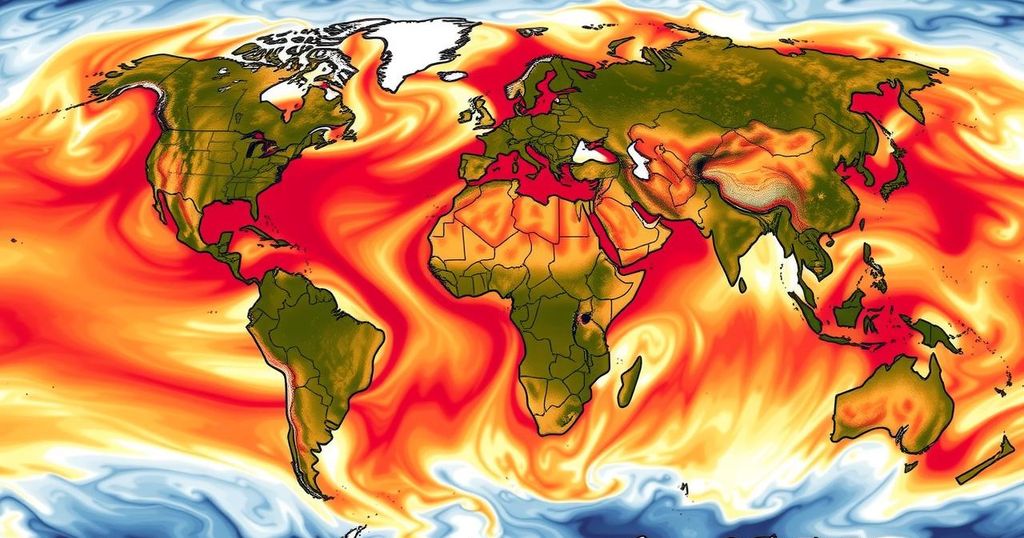2024 Declared the Hottest Year on Record Amid Alarming Climate Trends

According to NOAA, 2024 has been determined to be the warmest year on record. Average global temperatures increased significantly, with regions around the world recording their highest temperatures, and Antarctic sea ice coverage dropping to its second-lowest extent. Additionally, the ocean’s upper heat content reached unprecedented levels while global tropical cyclone activity remained near average.
In a significant revelation, scientists from NOAA’s National Centers for Environmental Information (NCEI) have officially declared that 2024 marks the warmest year on record for the planet. The analysis highlights an alarming increase in average surface temperatures, which soared to 2.32 degrees Fahrenheit (1.29 degrees Celsius) above the 20th-century average. This surpasses the previous record set in 2023 by 0.18 degrees Fahrenheit (0.10 degrees Celsius).
Regionally, Africa, Europe, North America, Oceania, and South America experienced their hottest years on record, while Asia and the Arctic observed their second-warmest years. The data indicates that the last decade has seen all ten of the warmest years since records began in 1850. Additionally, in terms of the pre-industrial average (1850-1900), global temperatures exceeded by 2.63 degrees Fahrenheit (1.46 degrees Celsius).
Other scientific institutions such as NASA, the Copernicus Climate Change Service, and the UK Met Office concur with NOAA’s findings, affirming 2024’s record heat.
Environmental indicators also present worrying trends in sea ice coverage. Antarctic sea ice extent in 2024 averaged 4.00 million square miles, marking the second-lowest level recorded. The February minimum extent reached 830,000 square miles, also ranking second-lowest. Furthermore, Arctic sea ice extent was recorded at 4.03 million square miles, the seventh-lowest extent on record.
In terms of ocean health, 2024 saw unprecedented upper ocean heat content, suggesting the ocean’s capacity to absorb heat is reaching alarming heights. Regarding storm activity, global tropical cyclones appeared near average, with eighty-five storms reported—slightly below the 1991–2020 average of eighty-eight.
The report compiled by NOAA emphasizes the critical state of global climate, shed light on how rising temperatures and diminished sea ice impact ecosystems and weather patterns. The data showcases an increasing trend in temperatures, marking 2024 as an extraordinary focal point in climate research. Understanding the implications of these findings is crucial, considering their potential effects on biodiversity, weather phenomena, and overall environmental stability. The authoritative analyses from multiple scientific organizations reinforce the validity of the report’s claims regarding the profound shifts in climate across the globe.
In summary, the 2024 climate report by NOAA reveals that this year has set a new record for global temperatures, with considerable increases observed across various regions. The data emphasizes critical declines in sea ice and alarming records in ocean heat content, which are indicators of climate change. These findings are corroborated by other scientific bodies, underscoring the urgent need for comprehensive climate action to mitigate the ongoing impacts of global warming.
Original Source: www.noaa.gov







